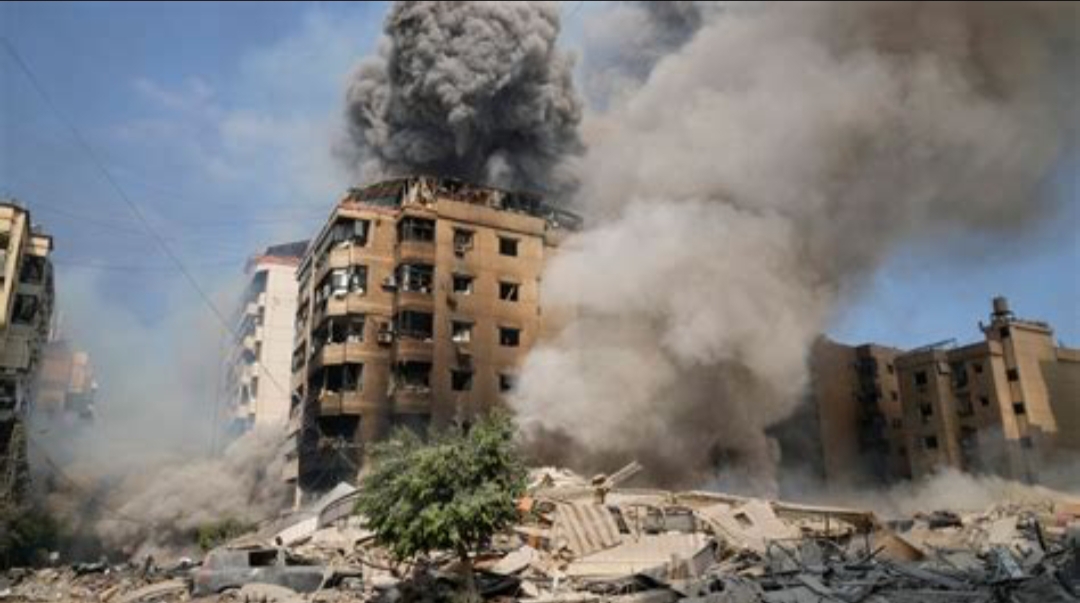In a significant escalation of regional tensions, Israel conducted airstrikes on Beirut's southern suburbs, marking the first such action since the ceasefire agreement with Hezbollah in November. The strikes targeted areas believed to house Hezbollah's drone storage facilities and command centers, reigniting fears of renewed conflict in the region.
Background of the Ceasefire
The ceasefire, brokered by the United States and France, was established to end the hostilities between Israel and Hezbollah that had resulted in significant casualties and displacement on both sides. Under the terms of the agreement, Hezbollah was to withdraw its armed presence from southern Lebanon, while Israel agreed to halt its military operations in the area. Despite these terms, both parties have accused each other of violations, leading to a fragile and tenuous peace.
Details of the Airstrikes
The recent Israeli airstrikes specifically targeted the Dahiyeh district, a known Hezbollah stronghold in Beirut's southern suburbs. According to reports, the strikes aimed at a drone storage facility and a truck, both allegedly associated with Hezbollah operations. The Israeli military stated that these actions were in response to rocket fire from Lebanon into northern Israel, which had been intercepted by Israeli defense systems. The strikes resulted in significant damage to infrastructure and prompted evacuations of residents in the affected areas.
Casualties and Humanitarian Impact
The airstrikes have led to casualties, with reports indicating at least three deaths and 18 injuries in southern Lebanon. The Lebanese Health Ministry has raised concerns about the potential for a rising death toll as emergency responders continue search and rescue operations. The destruction of residential buildings and infrastructure has also displaced numerous civilians, exacerbating the humanitarian crisis in the region.
International Reactions
The international community has expressed alarm over the escalation. French President Emmanuel Macron condemned the Israeli airstrikes, labeling them as unjustified and a violation of the ceasefire agreement. He emphasized that there was no activity to warrant such an attack and called for adherence to the established framework between Lebanon and Israel. Macron also announced plans to discuss the situation with U.S. President Donald Trump and Israeli Prime Minister Benjamin Netanyahu, aiming to restore full compliance with the ceasefire terms.
Hezbollah's Response
Hezbollah's deputy leader, Naim Kassem, stated that the group could take action if Israel continues its attacks on Lebanon without intervention from the Lebanese government. He highlighted that Hezbollah might use force if diplomatic solutions fail, underscoring the group's readiness to respond to perceived aggressions. This stance raises concerns about a potential return to open conflict between the two parties.
Regional Implications
The resurgence of hostilities between Israel and Hezbollah threatens to destabilize the broader Middle East region. The conflict has the potential to draw in other actors, including Iran, Hezbollah's principal backer, and could complicate ongoing diplomatic efforts to achieve lasting peace. The situation also poses risks to neighboring countries and could lead to wider regional instability if not addressed promptly.
Calls for Restraint and Dialogue
In light of the escalating situation, international leaders and organizations are urging both Israel and Hezbollah to exercise restraint and engage in dialogue to prevent further conflict. The United Nations and various humanitarian organizations have called for the protection of civilian lives and infrastructure, emphasizing the need for adherence to international law and the terms of the ceasefire agreement.
Conclusion
The recent Israeli airstrikes on Beirut represent a significant breach of the ceasefire agreement and have heightened tensions in an already volatile region. The actions have led to casualties, displacement, and international condemnation, underscoring the fragility of the current peace and the urgent need for renewed diplomatic efforts. As the situation develops, the international community will be closely monitoring the actions of both Israel and Hezbollah, hoping to prevent a return to full-scale conflict.
